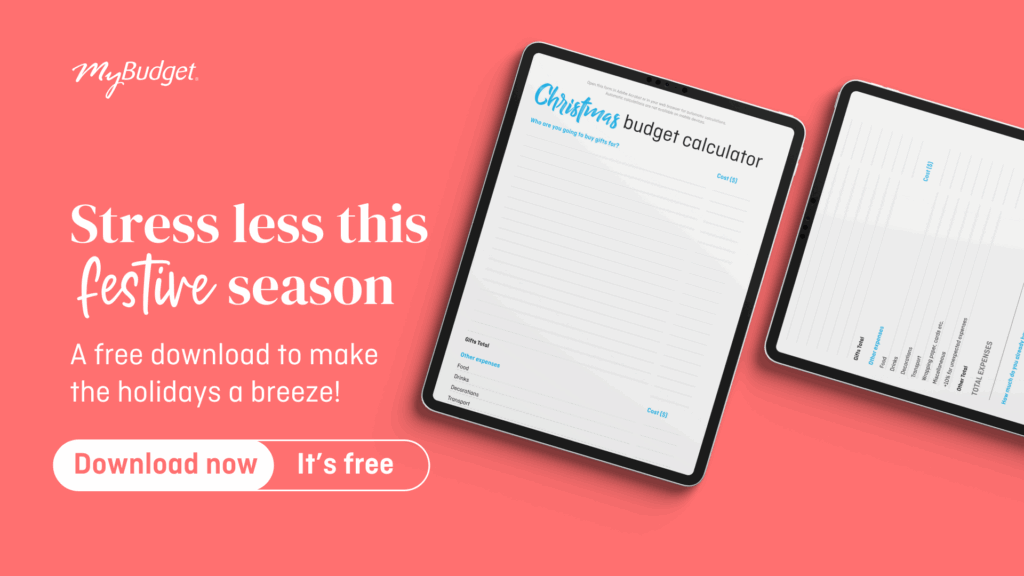Summer budgets are made in winter
Get ahead of the holiday rush with MyBudget’s expert tips and tools to start your Christmas budget plan in July and enjoy a stress-free, debt-free festive season.
Can I really start budgeting for Christmas in July?
Absolutely, and it might be the best thing you do all year. While the scent of gingerbread and the jingle of bells might feel months away, winter is the perfect time to prepare your Christmas budget. Think of it as your financial pre-season training for the festive season.
We know it all too well: December sneaks up and suddenly Christmas spending on gifts, travel, food and festivities blows up your budget like a box of dodgy bonbons. That January bank statement, full of credit card debt and interest payments, can be brutal.
But this year, let’s flip the script.
At MyBudget, we believe summer budgets are made in winter, and we’ve helped over 130,000 Australians prepare for life’s big moments, including the silly season. Start now and give future you the best gift of all: financial peace of mind.

Why should I plan my Christmas budget in winter?
Did you know? ASIC report that only 29% of Australians consistently stick to a Christmas budget, meanwhile, over half of MyBudget clients have a dedicated Christmas savings stream built into their budget.
That’s the power of budgeting with support!
To avoid debt and last-minute stress
Starting early means you can spread the cost across multiple pay cycles. Instead of scrambling for hundreds in December, you might only need to save $30–50 per week. That’s a manageable way to avoid racking up credit cards and facing high interest.
To shop smarter
From EOFY deals to Black Friday sales, July is prime time to grab bargains. Having a gift list and budget now means you’ll avoid panic buying later, and can snap up discounts along the way, whether it’s for a thoughtful present or a Secret Santa surprise.
To plan for everything
Christmas isn’t just presents. There’s food, Christmas decorations, petrol, Christmas cards, festive outfits, and maybe even a Christmas pudding or two. Planning now means fewer surprises later.
What’s the best way to save for Christmas?
Not sure where to start? Download our free Christmas Budget Template, it’s designed to help you list expenses, set a savings goal, and track your festive season spending without the overwhelm.
- Work out your total spend: think Christmas gifts, food, travel, events, wrapping paper, donations, the lot
- Divide and conquer: break it down by the number of weeks or paydays until mid-December
- Automate your savings: whether it’s a separate account, a Christmas savings club, or your MyBudget plan, make it automatic
- Start your gift list now: jot down names, ideas and budget limits, even for your Kris Kringle
- Watch for sales: tick off items as you find them at great prices, from festive pyjamas to a new Christmas tree.

How can MyBudget help?
With MyBudget, we’ll help you plan ahead, automate your Christmas savings, pay your bills on time and still have money for summer fun. Our expert money coaches create personalised plans that align with your goals, so December feels joyful, not stressful.
Want a debt-free Christmas? Let’s start planning now, from your Christmas order to your holiday expenses, we’ve got you.
Request a call from a money coach or call MyBudget today on 1300 300 922.
Want more inspiration? Learn how to create a Christmas budget in under 30 minutes.



